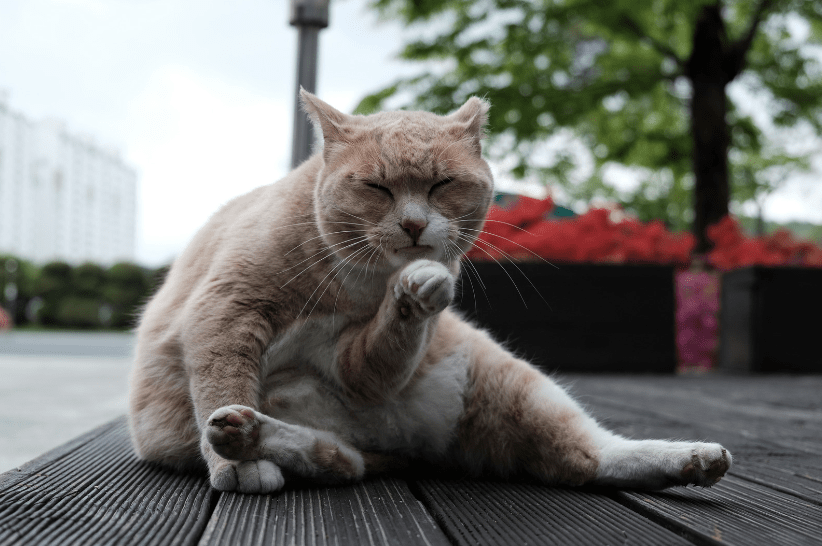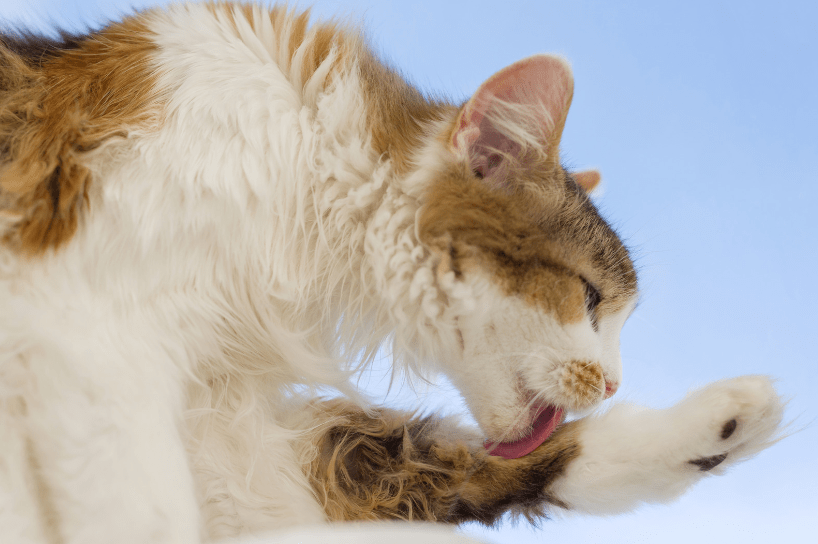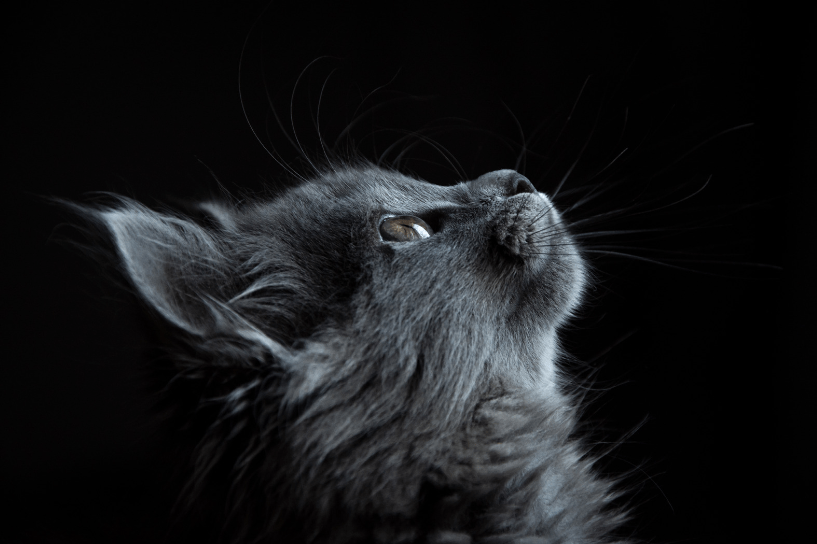
Blog
- Home
- Post: How Your Cat’s Diet Can Affect Their Fur

When it comes to cats, we know how to help with unwanted hair. That’s why our cat food and water dispenser doubles as a cat groomer. Our cat food and water dispenser is set up with one entrance. As your cat both enters and exits their feeder, the cloth of our different discs works to collect loose cat hair. Order our KittySalon Groomer today and find a grooming solution that’s practical and works!
If you’re worried about the health of your cat’s coat, there are different changes in their diet that can either improve or worsen their coat. Learn more about what different nutrients your cat requires and make sure their current diet meets those requirements.
Look at what kind of nutrients your cat is getting with their cat food. Unlike dogs, cats need more protein in their diet because they are obligate carnivores. This means that cats need to eat meat by necessity, mimicking the small prey they would eat in the wild.
Protein is found in your cat’s skin, along with their hair. That’s why red and flaky skin is a good indication of a protein deficiency. In order for their body and coat to be healthy, make sure they are getting a proper amount of protein in their diet.
Beyond protein: Did you know that cats don’t have the digestive enzymes or the right metabolism to process carbohydrates? That’s why they lean towards low-carbohydrate food choices.
Fat and fatty acids are another important part of your cat’s diet. These If you’re looking to improve the sheen of your cat’s coat, add more foods with fatty acids into their diet (containing Omega 3 and Omega 6). This can include salmon and other fish oils.
Vitamins and minerals are also essential for your cat to have a shiny and healthy coat. The vitamins and minerals they need include:
If you’re worried that your cat isn’t getting the right balance of vitamins and minerals, you can always check with your veterinarian to discuss their cat food and other cat foods that might provide a better balance.
While the main focus of this post has been about the effect your cat’s diet has on their coat, there are other factors that can also affect the appearance of their skin and hair.
As your cat ages, it can be harder for them to keep their coat as clean and healthy as when they were younger. You can help them out by grooming their fur for them. See if that care helps improve the look of their coat.
In a previous post about combating cat hair, we talked about giving your cat a bath as an option for reducing the amount of cat hair they have. But if you’re bathing your cat too much, that could be drying out their skin and affecting the health of their coat. Instead, slow down on the bathing and find other ways to groom them or deal with flea problems, like starting a monthly flea medication.
In certain cases, problems with your cat’s coat might come from stress. Excessive licking can happen as a result of high stress levels, causing greasy hair and hair loss. If that’s the case, work with their veterinarian to find the cause of the stress and work to improve both their skin and reduce their stress levels.
We hope that this post gave you some ideas when it comes to your cat’s diet and their coat.
Our KittySalon Groomer is a cat food and water dispenser that doubles as a groomer. This multi-purpose system creates a great way for you to know that your cat is getting groomer each day while also providing a contained space for their food and water.
Order your own KittySalon Groomer and find a cat food and water dispenser you can trust!



Yes, cats can get parvo, a highly contagious…
Why does my cat headbutt me? Headbutting is…
To reduce cat hair in the home, regularly…
Why is My Cat Pulling Her Hair Out?…